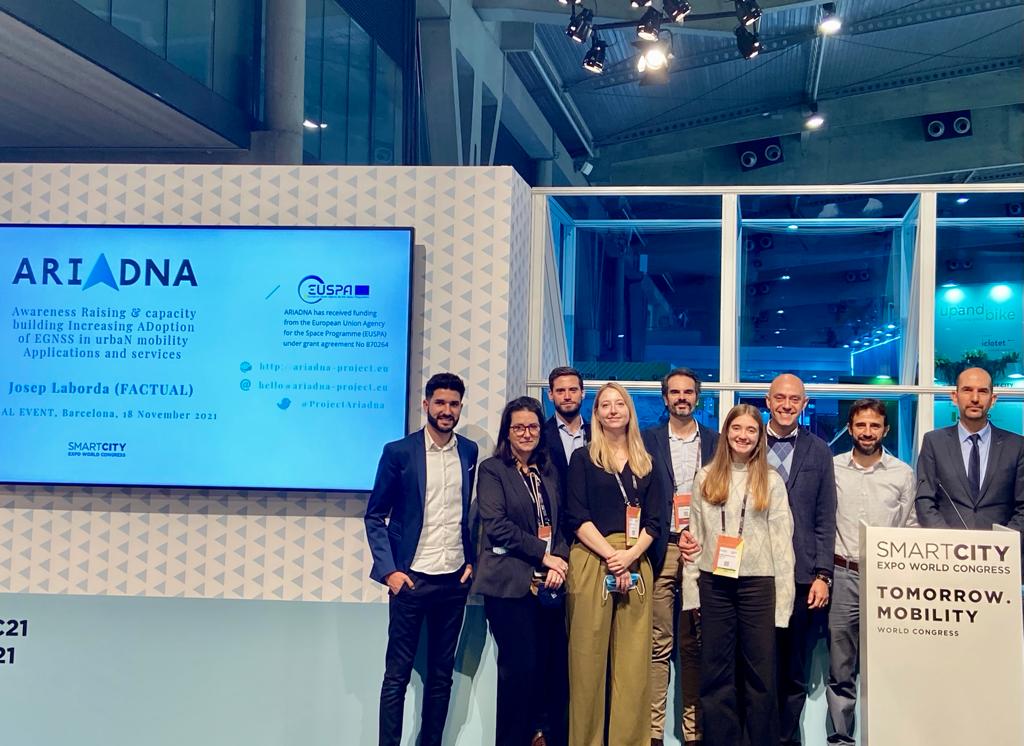All good things must come to an end, unfortunately also the ARIADNA project. After two years, the EUSPA project held its Final Event in Barcelona on 18 November at the Tomorrow Mobility Congress, organised in the context of the Smart City Expo World Congress.
During the event, the Consortium shared project achievements, international urban mobility stakeholders shared their experience with EGNSS, and discussions took place on the essence of geopositioning for public transport and the challenges of GNSS for mobility services.
The event was opened by ARIADNA’s Project Officer, Daniel Lopour from EUSPA, who provided a brief introduction into the project and how EGNSS is applied in urban mobility and various other fields. We also welcomed Gonzalo Alcaraz from IRF (the International Road Federation), who highlighted the relevance of high accurate GNSS positioning services for critical mobility applications, such as automated vehicles. The ARIADNA Consortium took to the stage too: while Project Coordinator Josep Laborda recapped project results, Sergi Paniagua from Pildo Labs shared with the audience the Galileo Demo Kit, which has been one of the main outcomes of the project.
The event concluded with a roundtable welcoming international urban mobility stakeholders TMB (Transports Metropolitans de Barcelona), tech provider Rokubun, public transport association ITxPT, and engineering service provider Egis. They discussed the challenges of GNSS for mobility services and shared how integrating EGNSS in their services has advanced their product or services.
Are you curious to know more about ARIADNA’s results? We have published a Final Leaflet highlighting all main project achievements. You can access the leaflet here.
 This project has received funding from the European Union Agency for the Space Programme (EUSPA) under grant agreement No 870264
This project has received funding from the European Union Agency for the Space Programme (EUSPA) under grant agreement No 870264
